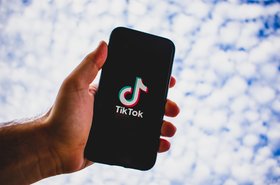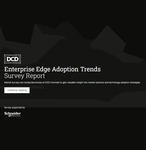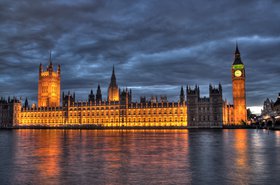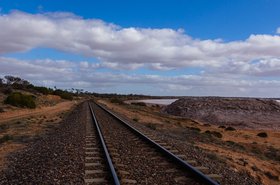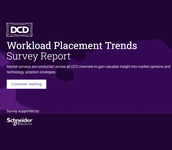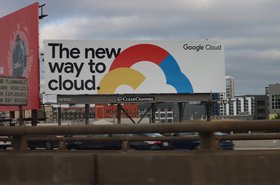TikTok is in the US government's crosshairs.
The company's Chinese owner ByteDance may soon be compelled to sell its regional operations to another company, or risk being blocked from the US entirely.
We've been here before. The last time it happened, the mere threat led to a significant shift in cloud spend and the construction of new data centers around the world.
What will happen this time?
After TikTok launched in the West back in 2017, it was an instant hit, with popularity growing rapidly - requiring significant data center resources to support its journey.
Within two years, it would sign a three-year deal with Google Cloud for $800 million in cloud services. In another two years, it would become Google's second-largest customer (behind Apple), with some 470 petabytes stored.
At the same time, it grew to become one of the largest users of wholesale data center space, with Digital Realty among its providers. In 2020 alone, the company is believed to have taken up 134MW out of a total 700MW of multi-tenant data center leasing.
But there was one problem: then US president Donald Trump. Amid a wider US-China relationship breakdown, Trump signed an executive order banning US companies from doing business with the platform after 15 September 2020.
Microsoft, sensing an opportunity, offered to acquire the company, in a moment that CEO Satya Nadella later called "the strangest thing." That offer followed the original stipulations of Trump's demands: That the sale lead to a wholly US-based company with all the tech kept in the country for national security concerns.
Oracle had another idea. It teamed up with Walmart, envisioning 'TikTok Global,' a new company spun out of ByteDance. The concept did not actually seem to address the concerns over security: The two companies would own a combined 20 percent stake, with ByteDance shareholders (including the CEO and employees) owning the remaining 80 percent.
With this promise of continued majority ownership, ByteDance agreed in principle to the deal - while simultaneously fighting the order to sell in court. Trump also pushed for the deal, approving it later that year. Oracle founder Larry Ellison was a major Trump donor, as was CEO Safra Catz.
Core to the deal was the promise that TikTok would move to Oracle Cloud, a decision the database company said was "heavily influenced by Zoom’s recent success in moving a large portion of its video conferencing capacity to the Oracle Public Cloud."
In reality, Oracle was only a small part of Zoom's pandemic infrastructure - the CEO publicly thanked AWS for keeping it going, while it expanded its own infrastructure. Earlier this month, we reported that the company was cutting back its cloud usage and building out its own data center footprint.
TikTok Global would not come to pass. Trump lost the election, the executive order was dropped, and the lawsuit was dismissed.
But the company remained in fear of a similar ban rearing its head once again, turning to the ally that had proved its influence in Washington and helped negotiate a deal where ByteDance kept the controlling stake: Oracle.
In 2022, TikTok began to move US data to Oracle Cloud - causing Google to lose one of its biggest customers. The social media platform continues to operate data center leases, but plans to eventually move everything over to Oracle (which leases space with some of the same providers).
A year later, TikTok announced 'Project Texas,' a $1.5 billion promise to hand control over data to Oracle, with source code overseen by an in-house committee approved by the U.S. government called TikTok U.S. Data Security.
"The bottom line is this American data stored on American soil by an American company overseen by American personnel," TikTok CEO Shou Chew said in a Congressional appearance.
At the same time, in hopes of heading off similar risks in Europe, TikTok launched 'Project Clover,' a plan to keep all European user data within the EU - a project that has led to new data centers in Ireland, and an enormous Green Mountain project in Norway.
But pulling off a major cloud migration and funding new data center builds may have all been for naught. Project Texas was unable to reassure legislators.
Last week, the House Commerce Committee voted 50-0 to approve a bill to force TikTok's sale, or for it to be banned from the US. Update: The US House has now passed a bill in favor of the ban. President Joe Biden has since said that he would sign the bill if it reaches his desk.
Curiously, former President Trump has now come out in support of TikTok, saying that it would only help the "enemy of the people" Facebook. His comments came soon after meeting billionaire GOP donor Jeff Yass, a major TikTok investor.
TikTok has said that it will fight the bill, and that its passage would "trample the First Amendment rights of 170 million Americans and deprive five million small businesses of a platform they rely on to grow and create jobs."
In reality, should the bill pass, it will probably not impact consumers too severely. TikTok's US operations are far more likely to be sold than shut down - a change of investors, but the same service for its fans.
For the data center industry, it could be a much bigger deal, however. Oracle could lose what is undoubtedly its biggest customer - or at least, what will become its biggest customer if and when Project Texas is over.
Microsoft could buy itself a new customer, as it has many times before. Or, the company could end up sticking to colo, as LinkedIn has done (itself another Microsoft acquisition).
And then, even if a deal happens and TikTok's operations change hands, there's no guarantee that whoever holds office next year will agree with the outcome.
It is perhaps fitting that a company that has built a business on short videos is now unable to plan for the long term, but for those trying to capacity plan TikTok's future, we bet they wish this was a problem they could simply swipe up and away.



